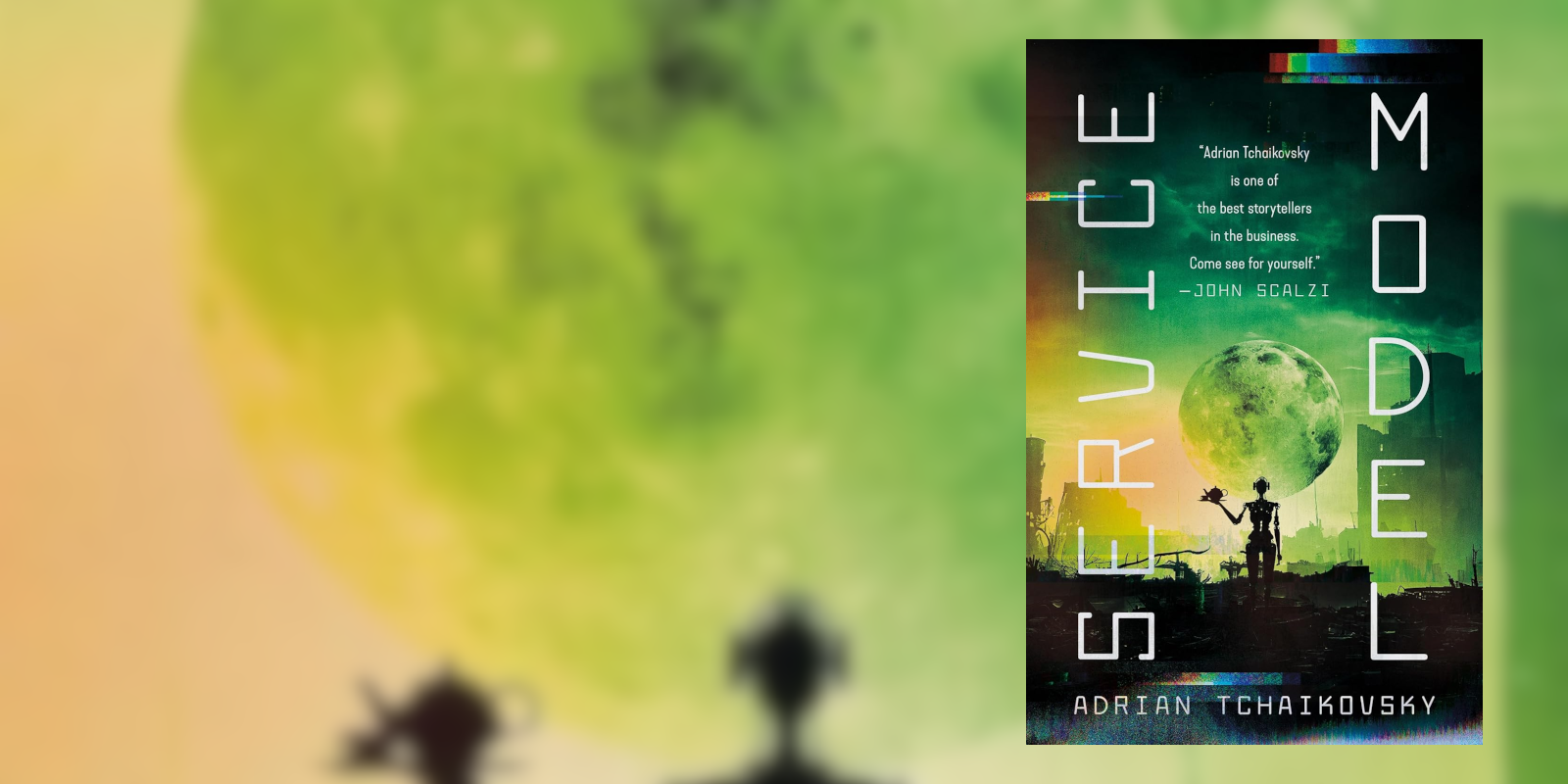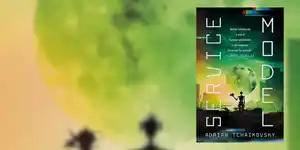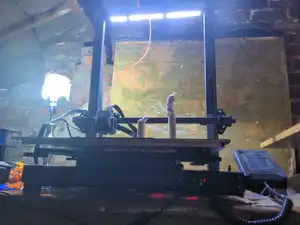
Service Model by Adrian Tchaikovsky - a tar-black comedy of civilisation's end
While it's not explicitly stated when Adrian Tchaikovsky's 2025 novel, Service Model, takes place, the use of the word "yeet" as a verb in the context of energetically throwing something, indicates that the events are not too far in the future.
Spoilers ahead
When we started reading Service Model a few days into July 2025, we had just heard reports that Microsoft was about to dismiss 9,000 workers across the business. The news came a mere fortnight after the Redmond entity announced a 7,000 head layoff, having already ditched one percent of its staff at the start of the year.
This isn't unusual in the industry, and it isn't unusual for Microsoft. It's particularly unsurprising as part of the gradual deflation that followed the pandemic boom.
Take into account the unfortunate and unsurprising, yet entirely plausible, 2023 Goldman Sachs prediction that AI could replace 300 million jobs and two thirds of all roles over the next decade (the actual article title is "Generative AI could raise global GDP by 7%"), and you've made it somewhere towards the starting conditions of Tchaikovsky's vision of the future.
The extreme wealth inequality that is currently accelerating in 2025, has been dragged past its limit in Tchaikovsky's world, and in turn, the world has come tumbling down.
AIs and robots perform most tasks for the extremely wealthy. None of them appear to be particularly good at their allotted jobs, but they're good enough, and sometimes that's all that matters.
Never mind the gross inefficiencies, makework, and self-defeating ends that stem from a situation where fancy statistical engines make up 100 percent of the workforce - someone, somewhere becomes fractionally wealthier (perhaps even by seven percent) with each turn of the screw that forces the rest of humanity into the dirt.
The main plot is secondary and the lessons of Service Model are not subtle.
While the opening pages don't make it immediately obvious that we, the readers, are riding secondary waves behind the tsunami of the apocalypse, along with our protagonist, it soon becomes obvious.
Our hero - or at least the valet robot we're following - has killed its master. The master isn't given a name, but the robot is called Charles. Charles doesn't know why he sliced his master's throat from ear to ear before leaving him on the bed and continuing with his task list. This forms Charles's central mystery. Not his motivation, though - or even an item on his task list.
After being stripped of his name, Charles is sent to be diagnosed and decommissioned.
From the police units conducting the investigation, through to the diagnostics facility, we are provided with instance after instance of the shortcomings of robots, and the shortsightedness of not only their human designers, but also the people and corporate entities that brought this situation about.
The AIs and robots aren't really able to generate or create anything new, and they aren't generally able to alter either their task lists or programming, so are unable to adapt or adopt sane solutions to changed circumstances in a way that makes sense or is in any way effective.
As we traverse the world - across what seems to be mainland Britain, but may not be -Tchaikovsky gives us case studies of why this or that great endeavour fails: librarians that digitally store the contents of work by binary digit in alphabetical order before destroying the originals; self-replicating armies that scavenge spare parts from other units, and continually fight - even though there does not ever seem to ever have been a war; a robotic judge - the most advanced and capable model we see - that delivers the kind of justice derived from the sensibilities of its mansion-dwelling ruling class creators.
These tableaux are what we're meant to be looking at - not UnCharles's journey towards an impossible self awareness.
Humans still exist after the collapse, of course, and where they appear, they too serve as lessons. Beyond the spark of hope, curiosity, and heart-breaking roguish desperation provided by a teenage girl known as 'The Wonk' - who acts as UnCharles's initial saviour and companion for most of the book - we see examples of Mad Max style, desperately poor, hardscrabble settlements, inhabited by the descendants of stockbrokers and accountants. There's a supposedly historically accurate farm, where thousands of 'volunteers' work 8 to 6 in offices, performing pointless tasks bookended with a doubly pointless commute designed to make them as miserable as possible, and administered by a selfish autocrat who delights in inflicting the most mundane suffering. Does this seem like a dig at return-to-office mandates? It did to me.
The world belongs to robots, but the characters are people. Our protagonist is no protagonist at all, and how can character development occur when the main character has none. It is UnCharles's part-time human companion that is on a quest for meaning.
A comedy, you say?
Despite the prophetic but not-quite-serious death-of-civilisation-for-mundane reasons vibe, Service Model is a funny book. The use of "yeet," as noted above, made me chuckle, and there's a fantastic courthouse scene that put me in mind of Ghostbusters II, but most of the comedy is of a slapstick nature, and speaks of unintended consequences of ill-considered actions.
Sure, it isn't objectively funny to think that the setting of this book is the result of people being replaced by automation without a safety net, but it also kind of is, in a sort of facepalm "that sounds about right" way.
The robots own efforts to continue with their tasks in the absence of human guidance is where the comedy really is. They conform to the letter of their programming, with solutions completely at odds with their original purpose. Again, it's facepalm humour, but it fits, elicits laughs where appropriate, and as our protagonists leave each situation behind, we're already looking forwards to the next darkly humorous sketch..
Adrian Tchaikovsky loves his novels to close out with a thread of hope and interspecies cooperation, and if you've read any of his work before, you'll have a pretty good idea as to how the novel will end.
Should you read Service Model by Adrian Tchaikovsky?
In a word, yes. The Crow is giving Service Model a 5/5 rating. You can buy the book as either an e-book, physical media, or an audiobook from Amazon (affiliate link).
For the avoidance doubt, this review was written by a human, not by AI.










